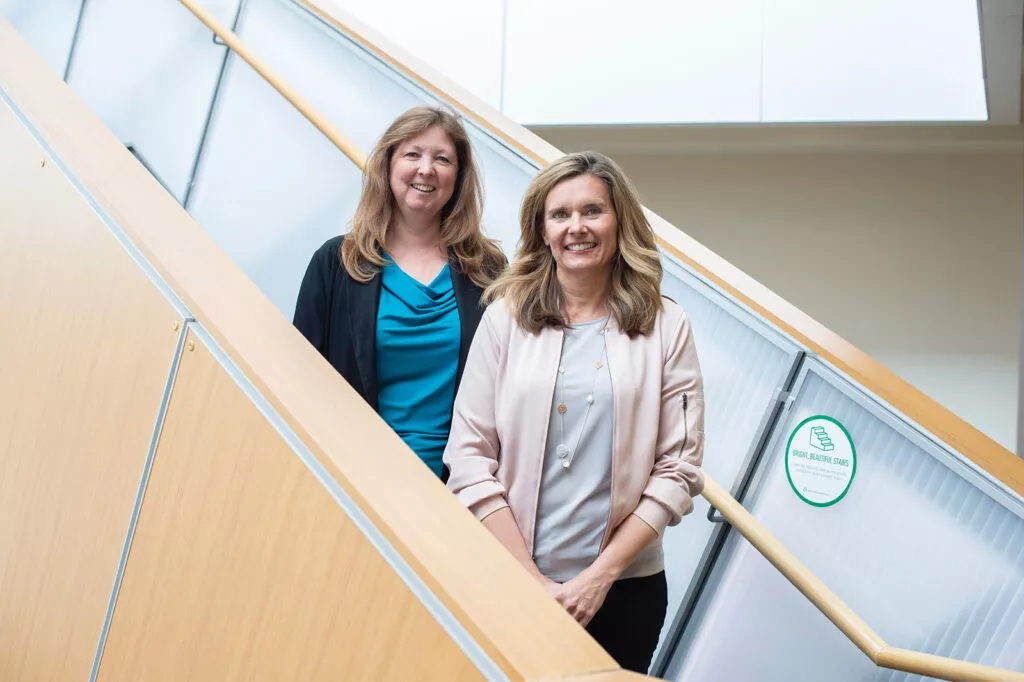Translating emergency knowledge for kids
A Foundation-supported initiative — and its app — are bringing much-needed support to rural physicians and their patients.
BY ELIZABETH CHORNEY-BOOTH
Originally published in HEROES Fall 2018

It can often be a challenge for rural doctors who don’t specialize in pediatrics to treat children with acute medical issues. Health-care professionals working in general emergency departments may not see children very often or have access to pediatric training.
Since it launched in 2011, Translating Emergency Knowledge for Kids (TREKK), an initiative funded by the Government of Canada through Networks of Centres of Excellence with support from organizations including the Stollery Children’s Hospital Foundation, has been helping rural physicians treat children in their communities. In addition to providing a knowledge network for health-care providers across Canada, the network’s website offers a number of easy-to-access tools, including videos and “Bottom Line Recommendations,” which are a series of summaries that detail facts and best practices to help health-care providers manage childhood conditions within a general emergency department setting. The tools are created with content advisors — which include Canadian pediatric physicians and researchers from across the country — and then approved by a steering committee, which includes the program’s co-directors, who hail from the Universities of Alberta, Calgary, Manitoba and Ottawa.
While those web-based tools have proven to be invaluable to many health professionals looking for diagnosis and drug dosing information, TREKK recently conducted a needs assessment with its stakeholders that revealed that internet access is not always reliable in remote communities. To address this problem, TREKK launched a new app in spring 2018. The app allows users to access all of the information on the TREKK website and store it on smart phones or tablets when Wi-Fi or data networks aren’t available.
“Health care advances rapidly, and it can be difficult for health-care providers, especially those working with patients in every age group, to stay on top of all the latest evidence and knowledge,” says Dr. Terry Klassen, TREKK’s network director. “With the TREKK app, you have evidence-based tools right in your pocket whenever you need them, updating and changing as the evidence evolves.”
TREKK also provides knowledge tools for parents and families on common acute childhood illnesses, including videos, online pamphlets and e-books. For example, when children are suffering with vomiting and diarrhea, their parents can turn to TREKK’s easy-to-read Sick All Night e-book for information, rather than turning to Google for potentially unreliable information or needlessly driving a long distance to the nearest hospital.
“We’ve done a lot of work with parents to determine what their experiences have been, what their information needs are, and how they typically access information,” says Dr. Lisa Hartling, a Stollery Science Lab Distinguished Researcher, professor in the department of pediatrics at the University of Alberta and one of TREKK’s co-directors. “We try to provide what they need to know to either manage that condition at home or make that decision to go to the emergency department.”
The app is just a piece in TREKK’s larger plan to deliver quality health care to all children. While it will never be possible to get every child in medical distress in front of a pediatric specialist, medical communities can work together to make sure every Canadian child benefits from the latest research and recommendations.